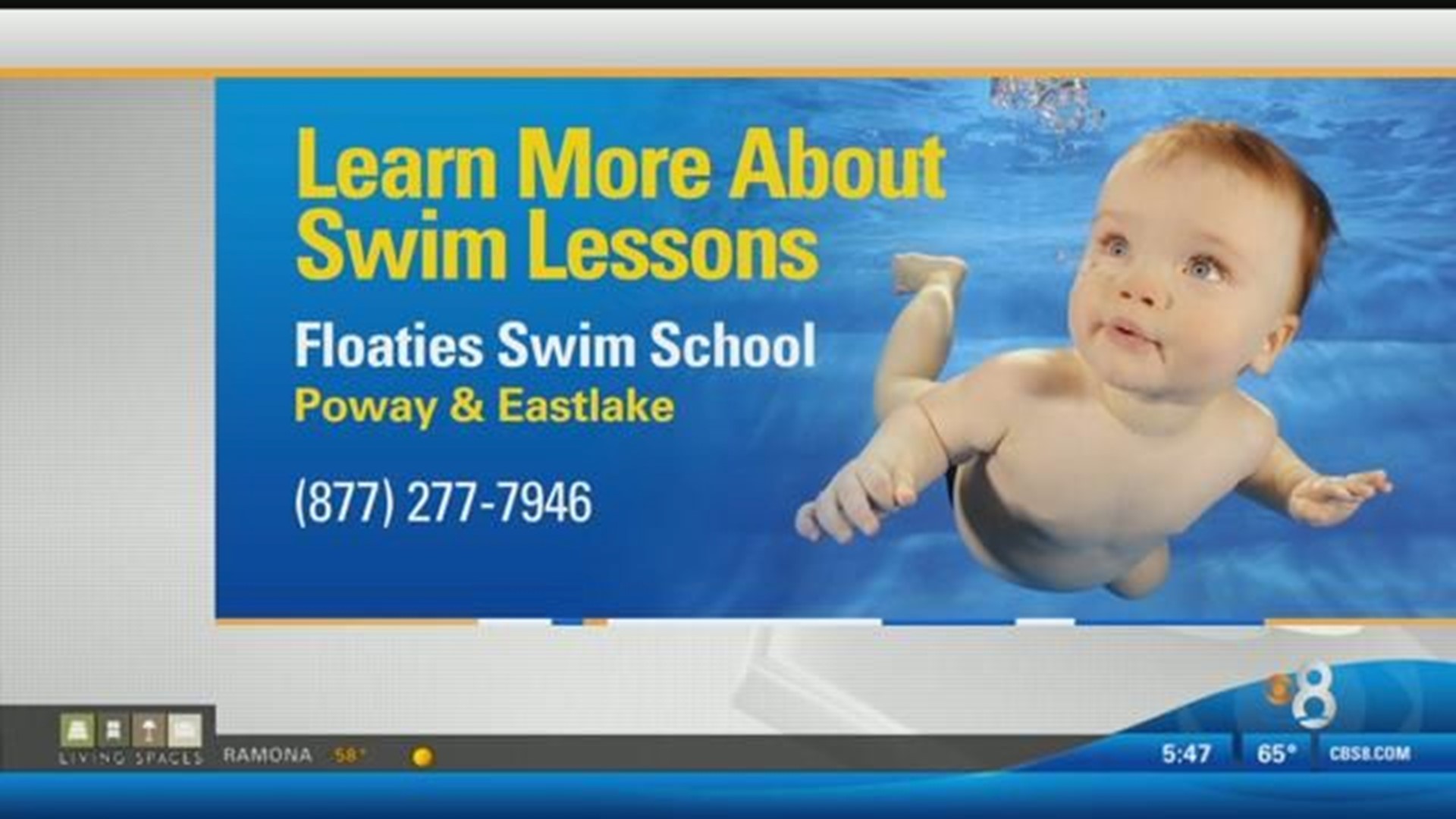SAN DIEGO (CBS 8) - Warmer weather means more time at the beaches and with school out, more kids will be hitting the water.
However, with all the fun also come some risks. Children ages 1 through 4 have the highest drowning rate, so you want to make sure you instill some important safety tips.
Floaties, a local swim school, believes that water safety and water competency are important skills that every child should possess. The school offers a fun, nurturing and loving environment for all students. With small class sizes, individualized attention and highly trained instructors, students develop and progress their swim skills while enjoying the water at the same time. Games, toys and races are all included in the fun and learning for their students.
Safety in and around the water is a top priority for Floaties. Their curriculum has a strong foundation of skills that allow for self-rescue and they also help educate parents regarding aquatic safety and proper pool supervision.
Safety Tips from the American Red Cross
•Swim in designated areas supervised by lifeguards.
•Always swim with a buddy; do not allow anyone to swim alone.
•Never leave a young child unattended near water and do not trust a child's life to another child; teach children to always ask permission to go near water.
•Have young children or inexperienced swimmers wear U.S. Coast Guard-approved life jackets around water, but do not rely on life jackets alone.
•Maintain constant supervision.
•Make sure everyone in your family learns to swim well. Enroll in age-appropriate Red Cross water orientation and learn-to-swim courses.
•If you have a pool, secure it with appropriate barriers. Many children who drown in home pools were out of sight for less than five minutes and in the care of one or both parents at the time.
•Avoid distractions when supervising children around water.
•If a child is missing, check the water first. Seconds count in preventing death or disability.
•Have appropriate equipment, such as reaching or throwing equipment, a cell phone, life jackets and a first aid kit.
•Know how and when to call 9-1-1 or the local emergency number.
•Enroll in Red Cross home pool safety, water safety, first aid and CPR/AED courses to learn how to prevent and respond to emergencies.
•Protect your skin. Limit the amount of direct sunlight you receive between 10:00 a.m. and 4:00 p.m. and wear sunscreen with a protection factor of at least 15.
•Drink plenty of water regularly, even if you're not thirsty. Avoid drinks with alcohol or caffeine in them.

